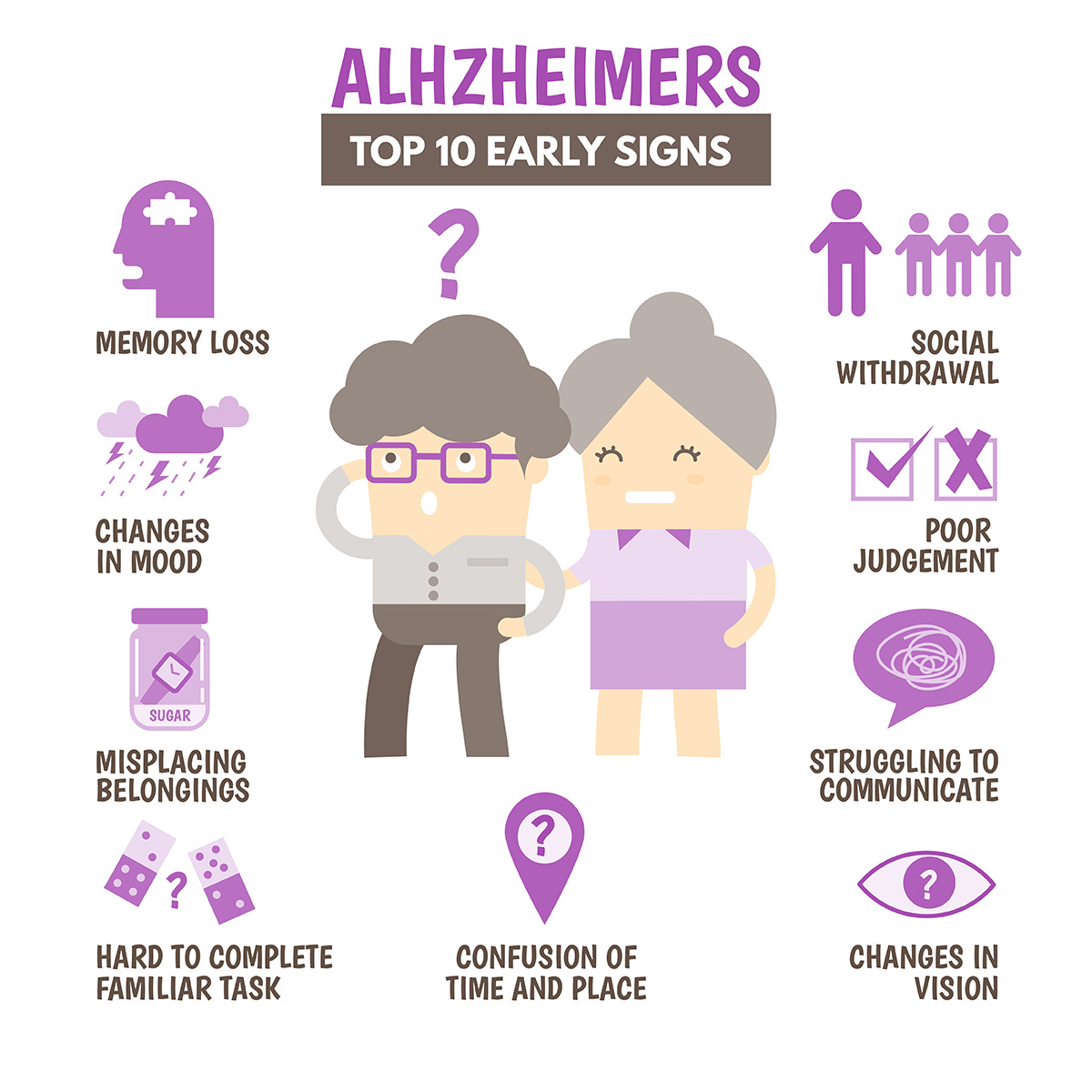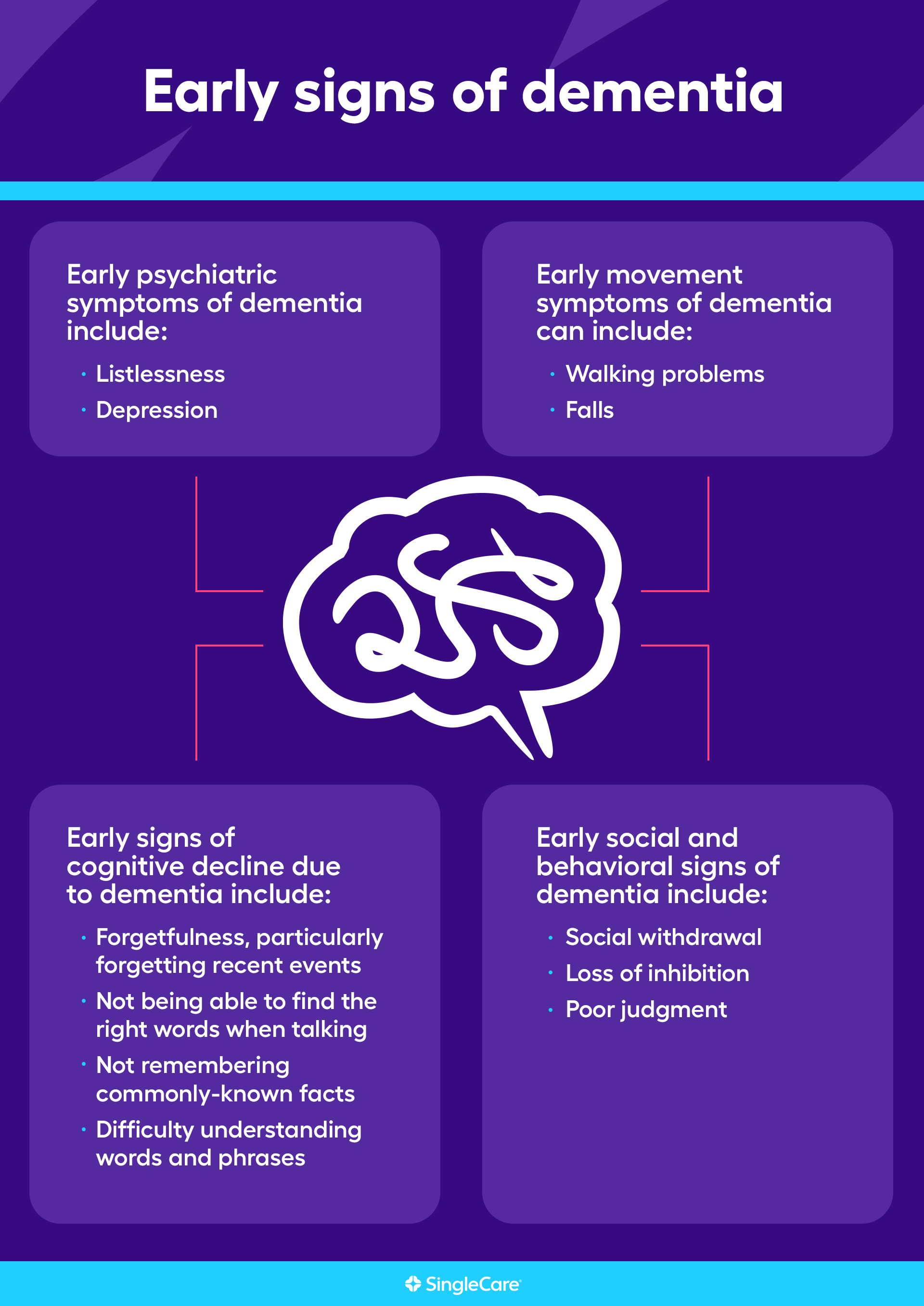Emotional and Behavioral Changes in Frontotemporal Dementia Patients
Emotional and Behavioral Changes in Frontotemporal Dementia Patients
Blog Article
Understanding the Effect of Mental Deterioration on Life and Caregiving
Dementia impacts daily life in profound ways, affecting not simply those detected however likewise their caretakers. As cognitive decrease progresses, you might notice modifications in communication and regular that obstacle both events.
The Phases of Mental Deterioration and Their Effects on Day-to-day Live
As you navigate the journey of dementia, recognizing its stages can significantly affect how you manage every day life. Mental deterioration commonly progresses through 3 primary stages: early, middle, and late. In the early stage, you may discover periodic memory gaps or difficulty finding the right words. This can result in frustration, however recognizing these signs early helps you adjust your routine and seek assistance.
Throughout the middle phase, you'll experience a lot more obvious cognitive decline. Daily tasks might end up being challenging, and preserving your self-reliance may need changes. Using pointers and streamlining your setting can assist.
In the late phase, individuals commonly require considerable help with everyday activities. Planning for care ends up being vital, concentrating on comfort and lifestyle. By comprehending these phases, you're much better furnished to react proactively, ensuring you or your loved one can browse the challenges with dignity and poise.

Changes in Interaction and Social Interaction
Exactly how do changes in communication impact your everyday interactions as dementia advances? As dementia advancements, you may see that simple discussions end up being challenging. Words may leave you, or you might struggle to locate the ideal expressions. This can lead to aggravation for both you and your enjoyed ones. Nonverbal signs, like gestures or faces, become progressively important.
You may discover it simpler to link with these ways as opposed to relying entirely on spoken language. Listening skills can additionally transform; you could find it more difficult to follow discussions or bear in mind what was just claimed (Fall Risk). This can result in misconceptions or feelings of isolation
Motivating persistence and creating a helpful atmosphere can assist. Involving in tasks that cultivate link, like songs or art, can enhance social communications. Remember, maintaining connections is still feasible; it's practically adjusting to new methods of communicating.
Influence On Daily Routines and Activities
While steering daily regimens, you'll likely discover that tasks you once finished effortlessly come to be a lot more tough as dementia proceeds. You might discover on your own failing to remember steps in acquainted regimens or having a hard time to remember where you placed things.
Preparation your day can really feel overwhelming, making it tougher to stay with a routine. You might need suggestions for consultations or to take medications. Adjusting your environment can assist; as an example, identifying things or making use of checklists can simplify tasks. Involving in repeated, organized activities can likewise provide convenience and a feeling of achievement. Keep in mind, it's fine to request for help. Surrounding yourself with helpful buddies or family can make managing these adjustments a little bit simpler.
Emotional and Behavioral Difficulties
Guiding with daily regimens can bring about not just sensible obstacles, however additionally emotional and behavior ones. You could observe modifications in mood, such as raised anxiety or disappointment, which can come from confusion or trouble in finishing tasks. As you browse these minutes, it is crucial to acknowledge that your liked one might reveal their feelings via habits like agitation or withdrawal.
These psychological reactions can be unpredictable and may emerge without caution, leaving you both sensation overwhelmed. You could locate that familiar settings or regimens can assist reduce stress and anxiety, yet keeping persistence becomes considerable. It is essential to validate their sensations, also if you don't completely recognize them.
The Role of Caregivers in Sustaining People With Dementia
As a caregiver, you play a vital duty in providing emotional assistance for people with dementia. Establishing day-to-day care routines can develop a sense of stability and convenience, helping to alleviate their anxiety. By recognizing their demands and utilizing efficient methods, you can substantially boost their quality of life.
Psychological Support Approaches
When caring for someone with dementia, comprehending the psychological landscape is essential for giving efficient assistance. Straightforward gestures, like holding their hand or preserving eye contact, can create a sense of safety and security. Eventually, do not fail to remember to take care of your very own psychological requirements; looking for assistance for on your own can improve your capability to care for them.
Daily Treatment Routines
Establishing daily care routines is important for giving security and convenience to people with dementia, as these regimens can help in reducing confusion and stress and anxiety. You can begin by outlining a regular schedule for meals, activities, and rest. This predictability aids your enjoyed one really feel a lot more safe and secure and involved.
Incorporate familiar jobs, like folding laundry or watering plants, which can stimulate favorable memories and foster a sense of accomplishment. Usage visual cues, such as checklists or schedules, to direct them via the day.
Be flexible, though; adjust regimens as needed based upon their state of mind or energy degrees. Vascular Dementia. Remember, your patience and understanding are important in navigating their altering requirements, guaranteeing they really feel sustained and valued throughout their day-to-day live
Developing a Safe and Comfortable Living Setting
Developing a secure and comfortable living environment is vital for individuals with dementia. You'll want to make home security alterations that reduce threats and guarantee familiarity to supply a feeling of comfort. By focusing on these facets, you can aid develop a room that sustains both safety and security and health.
Home Security Modifications
As you navigate the difficulties of Check This Out dementia, making home safety and security adjustments can substantially improve convenience and security. Begin by removing tripping dangers like rugs and mess, guaranteeing pathways are clear. Mount grab bars in washrooms and non-slip mats in the shower to avoid drops. Consider making use of brighter lighting and evening lights to improve exposure, especially during nighttime. Tag vital locations, such as the shower room and kitchen, with clear indications to assist with positioning. Secure any kind of sharp objects or hazardous substances unreachable. In addition, assess your home's locks and alarm systems to validate they're user-friendly and supply comfort. These alterations not only advertise safety however additionally motivate independence, permitting your liked one to really feel more secure in their setting.
Comfort and Experience
After ensuring a secure environment with essential modifications, promoting comfort and experience is important for people with mental deterioration. Begin by individualizing their area. Usage familiar colors, decorations, and photographs that evoke satisfied memories. A preferred blanket or chair can provide a complacency. Maintain a regular routine to aid them feel based and reduce anxiety. Simple, familiar meals can additionally create a soothing ambience. Maintain paths clear and clutter-free to prevent complication. Incorporate soft lights, as bright lights can be disorienting. Think about adding calming fragrances, like lavender, to advertise leisure. Participating in acquainted tasks, such as listening to music or gardening, can improve their feeling of belonging, making their living setting a real refuge.
Methods for Reliable Caregiving and Assistance
While steering the obstacles of dementia care can feel overwhelming, executing effective strategies can significantly go to my blog boost both the caretaker's and the patient's daily experience. Begin by establishing a routine; predictability helps in reducing stress and anxiety for both you and your loved one. Use clear, basic communication-- direct questions and brief sentences can avoid complication.

Don't fail to remember to look after on your own; schedule breaks and attach with support teams. Sharing experiences with others in comparable situations can provide useful insights and emotional alleviation.
Finally, remain patient and adaptable. Dementia can bring unforeseeable adjustments, so adjusting your strategy is crucial. By using these techniques, you can cultivate a much more favorable setting that profits both you and your enjoyed one.
Regularly Asked Concerns

What Are the Different Sorts Of Dementia?
You'll find several sorts of dementia, consisting of Alzheimer's, vascular dementia, Lewy body dementia, and frontotemporal dementia. Each kind affects memory and cognitive feature differently, so understanding the differences is necessary for appropriate medical diagnosis and care.
Exactly How Can I Help Somebody With Early-Stage Dementia?
You can assist someone with early-stage mental deterioration by holding your horses, offering assistance, and motivating them to take part in tasks they delight in. Maintaining routines constant and maintaining open communication can additionally make a significant difference in their every day life.
Are There Financial Resources Available for Mental Deterioration Care?
Yes, there are funds available for dementia care. You can discover entitlement program programs, not-for-profit companies, and insurance policy alternatives. It's additionally smart to speak with regional companies for certain resources tailored to your circumstance.
What Lawful Considerations Should Caregivers Understand?
As a caretaker, you need to think about power of lawyer, health care proxies, and guardianship laws. It's Get More Info vital to understand the lawful rights and responsibilities you hold, guaranteeing your enjoyed one gets appropriate treatment and protection.
Just How Can I Handle Caregiver Tension?
You can manage caregiver anxiety by prioritizing self-care, seeking support from pals or teams, establishing realistic assumptions, taking breaks, and exercising leisure strategies. Bear in mind, your wellness matters equally as long as the individual you're looking after.
Comprehending the Influence of Dementia on Daily Life and Caregiving.
As you browse the journey of dementia, recognizing its stages can markedly affect how you handle day-to-day life.While navigating day-to-day routines, you'll likely observe that tasks you as soon as completed easily ended up being much more tough as dementia progresses.Developing day-to-day care regimens is vital for giving stability and convenience to people with dementia, as these regimens can help decrease complication and stress and anxiety.While steering the challenges of mental deterioration treatment can feel overwhelming, implementing reliable techniques can considerably improve both the caregiver's and the patient's daily experience.
Report this page